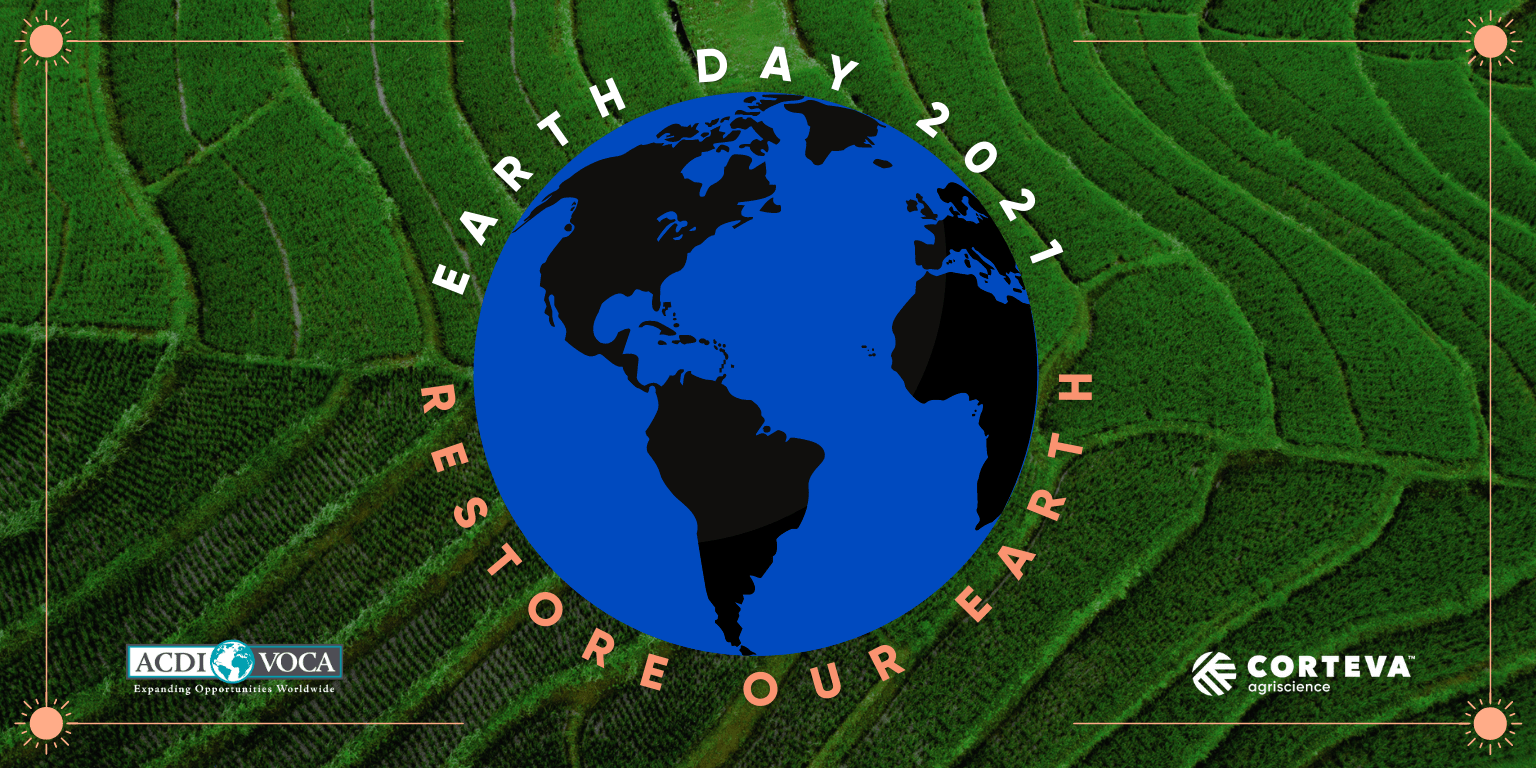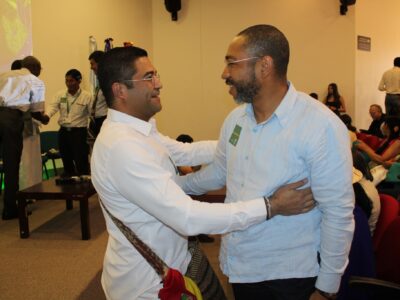
By its nature, agriculture is an innate partnership. The seed joins with the soil, water and nutrients to produce a food-bearing plant. The farmer is also in partnership with trusted advisors, financial entities, and buyers to bring the crop to market for the benefit of the community. As we celebrate Earth Day, Anne Alonzo, SVP and Chief Sustainability Officer for Corteva Agriscience, and I thought it an opportune time to share our thoughts on another collaboration, one that has been growing between our two organizations. For over a decade, Corteva and ADCI/VOCA have joined together around the world to enrich the lives of smallholder farmers and enhance the resilience of our global food system. Through leveraging each other’s strengths, we have increased the productivity and sustainable farming practices of millions of smallholder farmers. Our efforts have resulted in significant improvements in food security and uplifted communities.
The COVID-19 pandemic has laid bare many issues facing the global food system, and recent analysis from the International Monetary Fund and the World Bank indicates that Covid-19 will leave long-lasting economic scars, with per-capita income in emerging and developing countries expected to be 20 percent lower by the end of 2022. By 2030, the United Nations warns the number of people in extreme poverty could rise above one billion, an increase of around 250 million. In the same period, the demand for food is expected to increase by 50 to 60 percent, according to the Food and Agriculture Organization.
To address this dire situation, collaborations such as the one between ADCI/VOCA and Corteva are critical. Working together, we each bring complementary strengths to bear on pressing problems. Our work in Tanzania is one such example. Under the United States Agency for International Development (USAID) Feed the Future NAFAKA Initiative, we have improved the productivity and incomes of 600,000 smallholder farmers, increasing market participation of women and youth, while enhancing the nutritional quality of food in local communities.
In every country where we collaborate, our colleagues at Corteva have done tremendous work to train smallholder farmers on sustainable agriculture practices and strengthen local markets for seeds and crop protection technologies. Also, joint demonstration plots and field days have enabled our teams to empower farmers with knowledge about innovative products and practices. In conjunction, our ACDI/VOCA team has created a sustainable path to support farmers and agro-dealers on their journey by improving food security and enhancing overall household resilience. Our focus on women’s empowerment and diversity has ensured inclusive growth in some of the most vulnerable farming regions in Tanzania. As a result, smallholder farmers have greater access to technologies which are helping them adapt to climate change, such as Corteva hybrid maize seeds which can withstand the long, heavy rainfalls found in the Southern Highlands of Mbeya, Tanzania.
At ACDI/VOCA, we firmly believe in working with the private sector to strengthen smallholder farmer market systems, knowing that economies function better when market participants come together to solve problems and co-invest in solutions that yield widespread benefits. We also believe in the value of shared voices that join with communities to advance their resiliency while protecting the planet.
This Earth Day, Anne and I wanted to take a moment to recognize that we are better together. Only through partnership can we hope to build an inclusive and resilient food system that meets the needs of the most vulnerable people and our planet.
Comments





